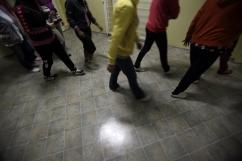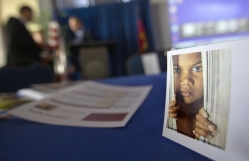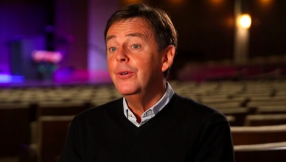
David Cameron has today announced a number of measures to tackle child abuse in the UK, coinciding with the publication of a review into child sexual exploitation in Oxfordshire.
Child protection expert Simon Bass said there needed to be a "sea-change" in Britain with regard to reporting abuse.
The government proposals include making it a criminal offence for senior public sector officials to "wilfully neglect" children who are at risk of, and experience, abuse.
The measures extend the sanctions which already exist for parents and care workers to teachers, social workers and councillors. There are also plans to introduce a new national helpline to enable professionals to report abuse.
Bass, who is the chief executive of the Churches' Child Protection Advisory Service (CCPAS), welcomed the proposed measures and said there was a need for mandatory reporting in the UK, including for the Church.
"Far too often, abuse has not been reported and anything that could drive that change is to be welcomed," he said.
"This should not be about getting at over-worked social workers and police officers; this should really be about intent – why did somebody not report? And if it can be proven that they failed to report because they were protecting the reputation of the institution or individuals then clearly that tips into the criminal element."

He said the proposals "should enhance the reporting mechanism so that everybody in an organisation or a church where they discover or suspect abuse should automatically report that to the designated individual."
Bass said he was aware of some cases where priests accused of child sexual abuse had been moved to other geographical areas without being reported.
The prime minister has today also declared child sexual abuse a national threat, giving it the same degree of severity as organised crime and means that police forces around the country will have a duty to collaborate in safeguarding children, something that has been lacking in the past.
The government's proposals were launched at a meeting at Downing Street today, attended by victims, child protection experts and representatives from the police and local councils. The proposals will be put forward for public consultation.
The high profile scandals in Rotherham and Oxford that have come to light in the past year have increased the sense of urgency in tackling this crime, particularly at an institutional level.
The announcement coincides with the report of a serious case review of child sexual exploitation in Oxfordshire that was published today. The report reveals that as many as 373 young people may have been victims of abuse, the majority of whom are girls. The investigation followed the imprisonment of seven men in 2013 for sexual offences against six girls in Oxford between 2004 and 2012.
Yesterday police charged 10 men with sexual offences against young women aged 13-23 that allegedly occurred between 2005 and 2013 in Rochdale, Greater Manchester. They were charged by a team involved in a broader investigation into child sexual exploitation Rochdale.
There are similarities between the findings of the Oxford review and the investigations into the widespread abuse in Rotherham that took place between 1997 and 2013.
Both cases reveal institutional failings and numerous cases of public sector workers failing to respond to calls for help, something that the government is hoping to counter with the proposed new measures.
In some cases, police and social services failed to believe victims because they believed they had adopted a particular kind of lifestyle that put them at risk of such attacks, although the Oxfordshire report has not found evidence of "willful neglect" by police and social services.
Natalie Collins, a Christian activist on domestic violence, told Christian Today that we can't expect to achieve cultural change only by introducing new criminal charges.
"It has to be part of a holistic change in the system; we can't only change the law," Collins said. "Every single act that these men committed were illegal acts. The problem was not that the law needed to change, but the implementation of the law."
She added that we need widespread across society to counter the prevalent belief that victims are to blame for abuse.
There is now also pressure on senior council figures to take personal responsibility for the protection of – or failure to protect – children in their area.
Rotherham's entire council leadership resigned from their positions in early February following an inquiry into the council's failings to safeguard children. The inquiry was commissioned after the report by social worker Alexis Jay, released in August, revealed that 1,400 young people had been subjected to grooming and sexual exploitation.
While Oxfordshire County Council has admitted that mistakes were made, the former council leader, Keith Michell told the BBC "We're not another Rotherham... We are a good council and we have put in place the measures that are necessary to stamp this evil out.". However, the council's chief executive Joanna Simons had already announced that she will step down from her position this summer, but there has been a call for her to leave before then.
According to the BBC, Liberal Democrat MP Catherine Bearder said: "It is now clear there have been failures both within the social services and the police, by the very people who should have been protecting these vulnerable young girls and those responsible should look to their consciences to make the right move now.
"Rather than waiting until the summer... Joanna Simons must step down now – she must take responsibility for these endemic failings."
Collins commented that such resignations were appropriate where people had failed to do their job, but warned against a "scapegoating mentality", where we seek to find someone to blame, "when actually the whole structure is the problem."
Last week local churches held a prayer vigil was held for the victims of abuse in the South Yorkshire town, which was attended by the Bishop of Sheffield and local MP Sarah Champion.
The major emphasis for churches, as for all public institutions, is to introduce better training and encourage a willingness to report suspected cases of abuse.

















